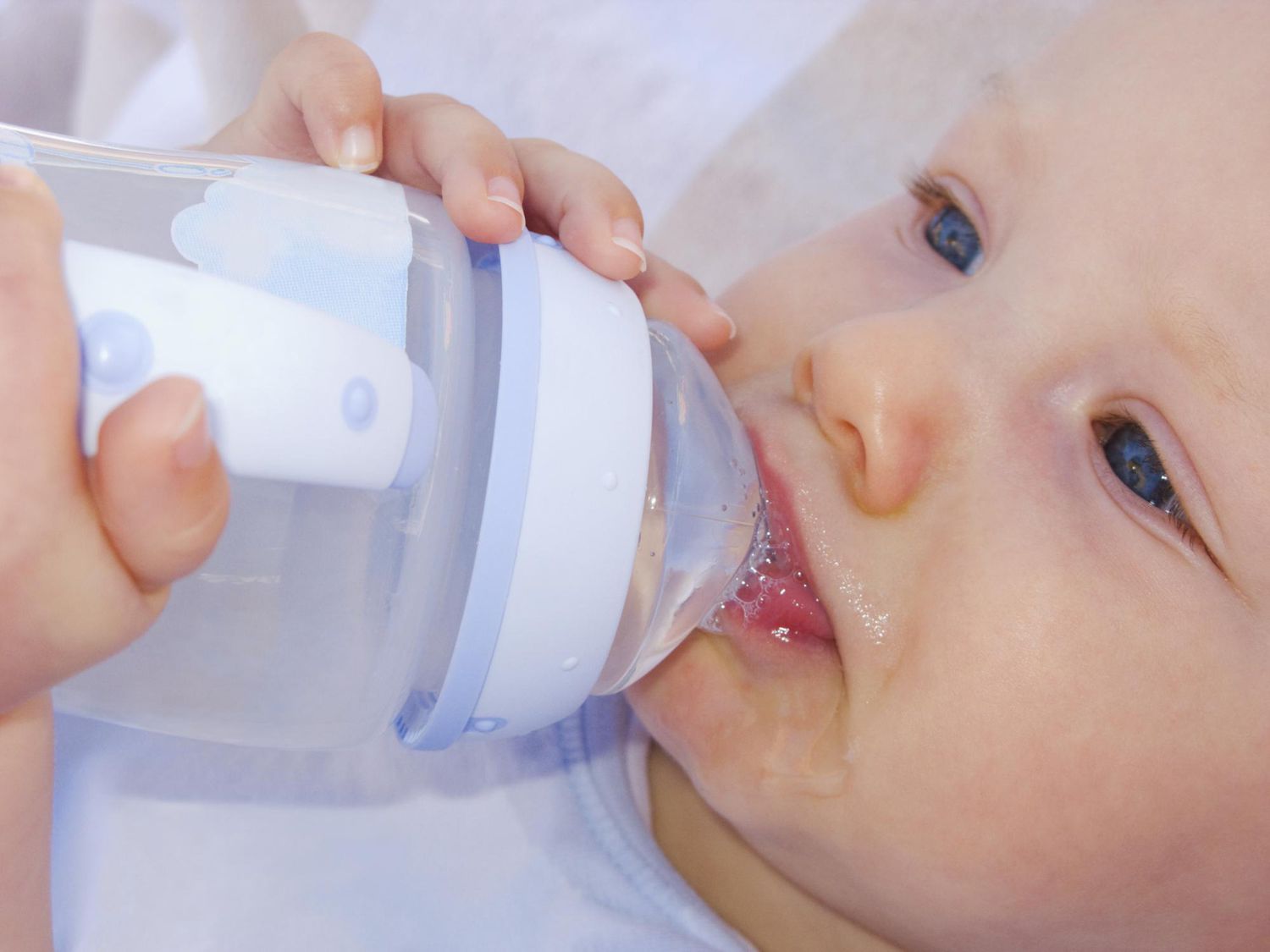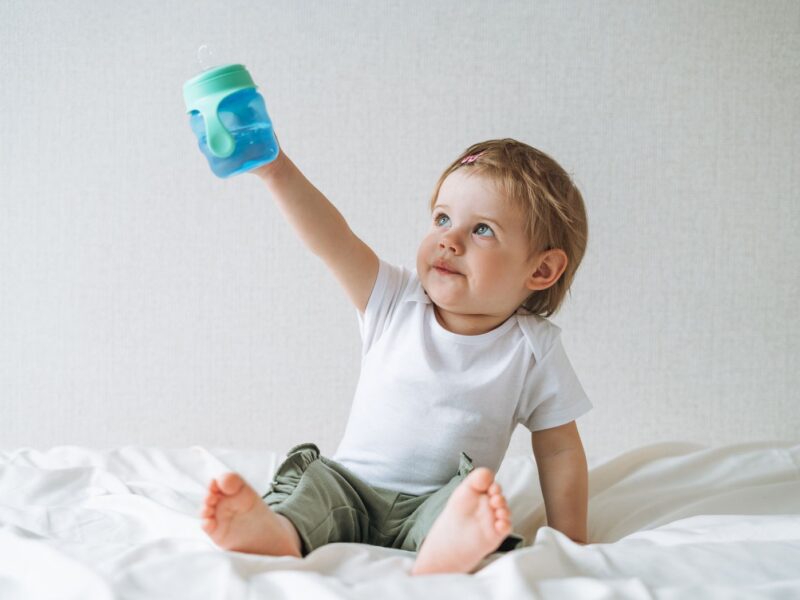In the UK, it’s generally recommended not to give babies bottled water as their main source of hydration, especially if they’re under six months old. This is because bottled water can sometimes contain higher levels of minerals like sodium and sulphate, which may not be suitable for babies in large quantities.
Instead, for formula-fed babies, it’s advised to use cooled boiled water that has been boiled and then cooled down. Breastfed babies typically don’t need extra water unless advised by a healthcare professional.
Once babies are around six months old and starting to eat solid foods, you can introduce small amounts of tap water alongside their meals. Always consult with a healthcare professional if you have concerns about your baby’s hydration needs.
What are the recommendations for infant hydration?
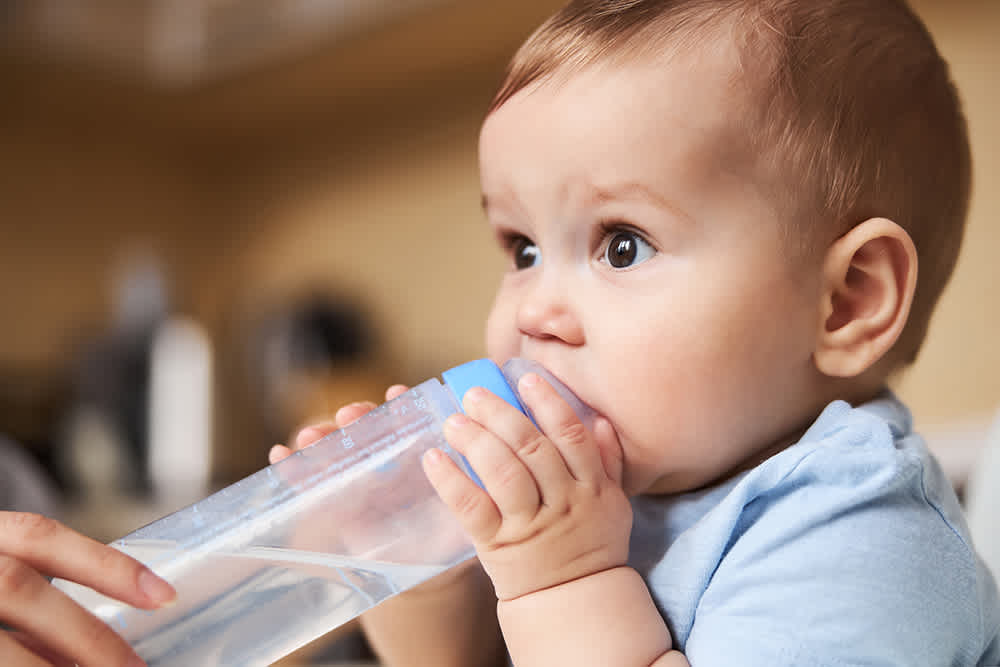
For infants, especially those exclusively breastfed, hydration is primarily met through breast milk or infant formula. Here are some recommendations for ensuring adequate hydration in infants:
Breastfeeding
Breast milk is the ideal source of nutrition and hydration for infants. It contains the perfect balance of nutrients and fluids tailored to the baby’s needs.
Newborns should be breastfed on demand, which means feeding whenever the baby shows hunger cues, such as rooting, sucking on fists, or crying.
Breastfeeding frequency varies from baby to baby, but initially, newborns may nurse every 2-3 hours, including at night.
Formula Feeding
If breastfeeding is not possible, infant formula provides a suitable alternative. Formula-fed babies should be fed according to the instructions on the formula packaging.
The amount of formula needed may vary based on the baby’s weight and age. Typically, newborns consume about 2.5 ounces of formula per pound of body weight in a 24-hour period.
Feeding Frequency
Infants have small stomachs and need to eat frequently. Newborns may feed 8-12 times in a 24-hour period, including both breastfeeding and formula feeding sessions.
Pay attention to hunger cues rather than sticking strictly to a feeding schedule, especially in the early weeks.
Monitoring Hydration
A key indicator of adequate hydration in infants is the number of wet diapers. Newborns should have at least 6 wet diapers a day, with urine being pale yellow in color.
If using disposable diapers, they should feel heavy and wet. In cloth diapers, check for moisture against the baby’s skin.
Signs of Dehydration:
It’s essential to recognize signs of dehydration in infants, such as dry mouth, sunken fontanelle (soft spot on the baby’s head), lack of tears when crying, lethargy, and fewer wet diapers than usual.
If you notice any of these signs, contact a pediatrician immediately.
Weather and Illness Considerations
During hot weather or if the baby is ill with a fever, they may need more fluids to stay hydrated. Offer breast milk or formula more frequently in these situations.
If a baby is vomiting or having diarrhea, it’s crucial to replace lost fluids by offering more frequent breastfeeding or formula feeding sessions.
Avoid Overfeeding Water
Water is generally not recommended for infants under six months old, as it can interfere with nutrient absorption and may even be dangerous in large amounts.
Breast milk or formula provides the necessary hydration and nutrients for infants in the first six months of life.
How does bottled water affect baby health?
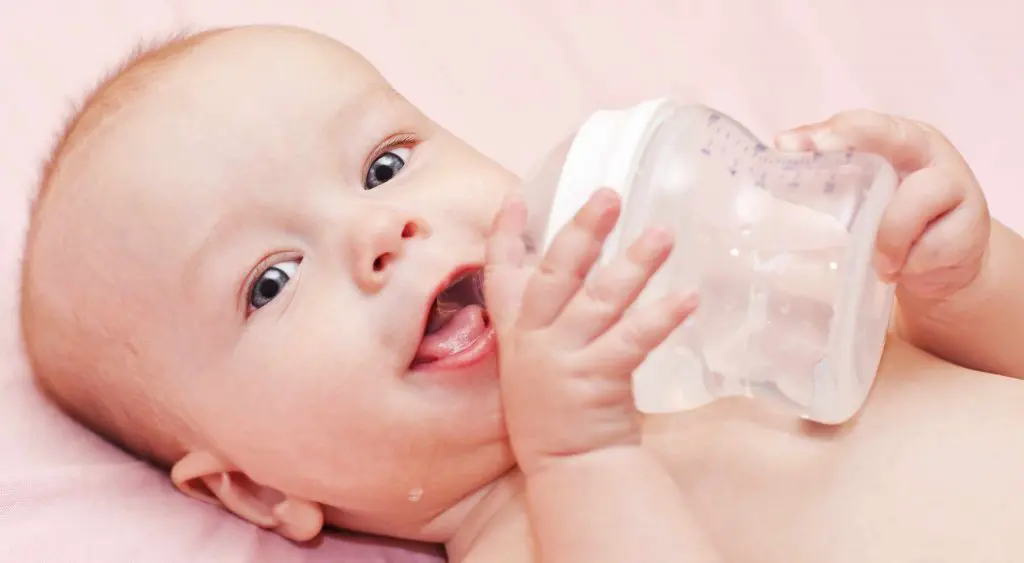
Bottled water can affect baby health in several ways, depending on factors such as the quality of the water, the container it’s stored in, and how it’s used. Here are some considerations:
Nutrient Deficiency
Bottled water lacks the fluoride and sometimes essential minerals present in tap water. Fluoride is crucial for dental health, as it helps prevent tooth decay. In areas where tap water is fluoridated, using bottled water for formula preparation may increase the risk of dental problems.
Some bottled waters are labeled as “purified” or “distilled,” indicating that they have undergone processes that remove minerals. While this may be desirable for adults with specific health concerns, it’s not ideal for babies who need these minerals for healthy growth and development.
Contaminants
The quality of bottled water can vary significantly depending on its source and production process. While many brands adhere to strict quality standards, others may contain contaminants such as bacteria, arsenic, lead, or other chemicals.
Babies, with their developing immune systems and smaller body sizes, may be more susceptible to the negative effects of these contaminants. Even low levels of certain contaminants can have adverse health effects over time.
Sustainability
Bottled water contributes to plastic pollution, as most single-use bottles are made from plastic. The production, transportation, and disposal of plastic bottles have environmental consequences, including pollution of oceans and harm to wildlife.
Choosing alternatives to single-use bottled water, such as using tap water or investing in reusable water bottles with filtration systems, can help reduce the environmental impact associated with infant hydration.
Cost
Bottled water is typically more expensive than tap water. For families on a tight budget, the cost of purchasing bottled water for formula preparation or general hydration needs can become burdensome over time.
Using tap water, which is generally available at a low cost or even free in many areas, can help save money while still providing clean, safe hydration for infants.
Convenience:
While bottled water may seem convenient, especially for parents on the go, relying on it exclusively for infant hydration may not be practical or sustainable in the long run.
Access to clean, safe tap water is often more reliable and cost-effective. Investing in a reusable water bottle with a filtration system can provide a convenient way to ensure access to clean water wherever you go.
When should babies start having bottled water in the UK?
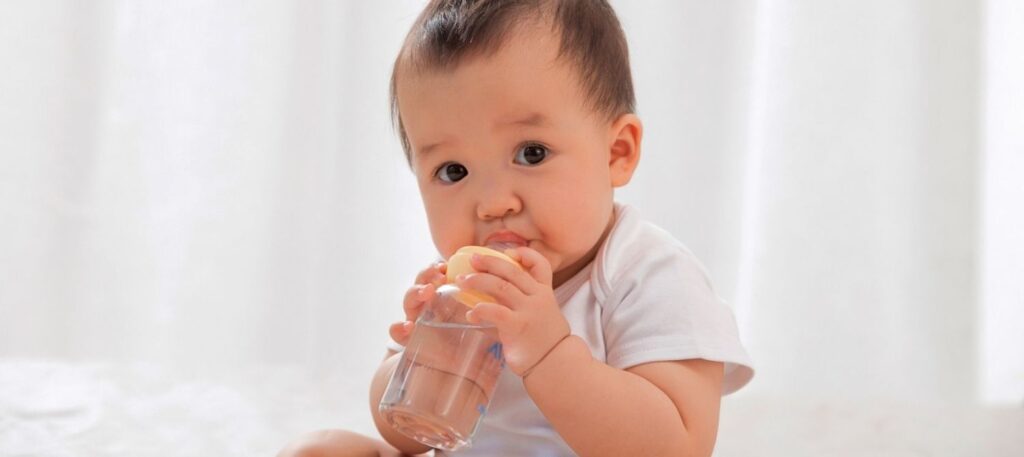
In the UK, babies typically do not need to start having bottled water as their primary source of hydration. Tap water in the UK is subject to strict quality regulations and is generally safe to drink, including for infants. The National Health Service (NHS) recommends using tap water for making formula milk for babies under six months old.
Here are some key points to consider regarding infants and bottled water in the UK:
For babies under six months old, breast milk or infant formula provides all the necessary hydration and nutrients. Breastfeeding is encouraged as the preferred method of feeding during this time. If formula feeding, it’s safe to use tap water for formula preparation.
The NHS advises that you can offer your baby cooled boiled water in addition to formula milk from around six months of age, particularly in hot weather or during periods of illness. This helps to keep them hydrated, especially as they start to consume solid foods.
As babies transition to drinking water, tap water is the recommended choice. It’s easily accessible and cost-effective. The fluoride content in tap water also helps promote dental health.
While there may be situations where bottled water is used, such as when traveling or if tap water is temporarily unavailable, it’s generally not necessary or recommended as the primary source of hydration for infants in the UK.
Final Words
It’s important to follow the recommendations for keeping babies hydrated. Avoiding bottled water for infants under six months is advised, with a transition to water alongside solid foods. Consulting healthcare professionals for personalized guidance is crucial. Always prioritize the well-being of your little one by following these simple guidelines.

